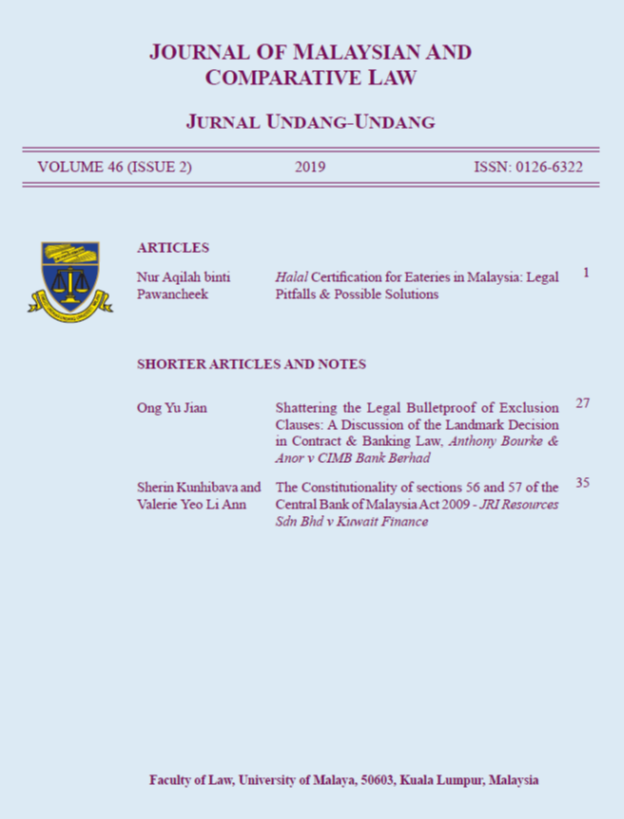Halal Certification for Eateries in Malaysia
Legal Pitfalls & Possible Solutions
Keywords:
Halal, JAKIM, Halal certification, eateries, restaurants, Federal Constitution, demarcation, powers, pith and substanceAbstract
Abstract
The Halal food and beverage (` Halal F&B ') industry is a highly lucrative business venture. Malaysia, among many other countries, has decisively taken steps to penetrate the global Halal F&B market by expanding their business networks across the country and overseas. Malaysia is regarded as a major provider of Halal F&B and is en route to becoming the leading international Halal hub in Halal tourism. This success is believed to have stemmed from the Halal certification standards set up by the Department of Islamic Development Malaysia (`JAKIM'). To lure the Muslim-majority consumer pool, many eatery establishments in Malaysia strive to be Halal-certified by JAKIM. Nevertheless, they often bemoan the struggle in obtaining the Halal certificate; indicating the need to re-examine the Halal legal regime and the efficiency of Malaysia's Halal certification system. This paper seeks to explore the legal and institutional issues encompassing the Halal certification system and the challenges faced by eatery businesses as a consequence thereof. In an effort to address these issues, this author puts forth a list of proposals for the benefit of Halal governance and eatery businesses in Malaysia.
Keywords: Halal, JAKIM Halal certification, eateries or restaurants, Federal Constitution, demarcation of powers, pith and substance.



